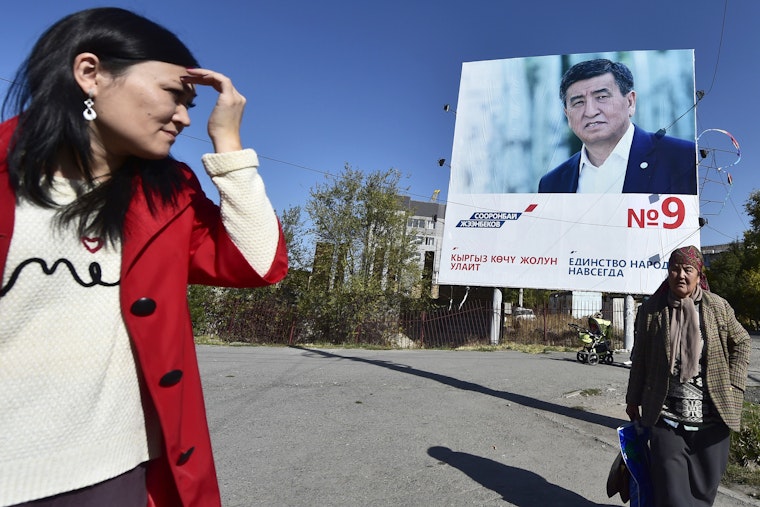Is Judicial Independence Finally Coming to Kyrgyzstan?
By Shamil Ibragimov & Joshua Russell

In a region where authoritarian rule thrives, Kyrgyzstan just held the most competitive presidential election in Central Asia since the fall of the Soviet Union. If the new president, Sooronbai Jeenbekov, can create an independent judicial system, Kyrgyzstan has a real chance to build a sustainable democratic government.
Since becoming an independent country in 1991, the government of Kyrgyzstan has used a combination of the courts and law enforcement bodies to consolidate power and quash political opposition. The current president, Almazbek Atambayev, for example, has filed recent lawsuits to silence media outlets and political opponents who have been critical of his leadership.
Kyrgyzstan’s constitution gives the president significant power to reform the court system, which means Jeenbekov could make significant moves, relatively quickly, to shield the court system from political interference. Doing so would improve the economy, public safety, and trust in government.
First, Jeenbekov should reestablish and reaffirm the legitimacy of the Council for the Selection of Judges. The council determines who becomes a judge in Kyrgyzstan, and its members are nominated by the parliament, the president, and civil society.
In theory, each one of the three groups is supposed to be able to choose one-third of the council’s members. Since 2015, however, close to 30 percent of candidates proposed by the Council for Selection of Judges were turned down by the president—without any justification. Under these conditions, it is difficult, to say the least, for the judiciary to exercise meaningful oversight over the government’s other branches.
Second, additional guarantees should be put in place to ensure that the work of the Disciplinary Commission of the Council of Judges is free from any form of political influence. There have long been allegations that the commission uses its power not to protect the judiciary’s independence, but rather to exert the president’s authority. An example: in the past two years, 27 judges have left the judiciary through either disciplinary hearings or “voluntarily” (a frequently used euphemism when a judge is forced out for political reasons).
Last but not least, Jeenbekov could initiate changes to the government budget that would protect the judiciary’s future funding from politically motivated spending cuts. If the judiciary had dedicated funding, it would not be subject to the annual whims of politicians during budgetary debates. A steady funding stream, removed from political influence, would increase the judiciary’s independence.
Judicial independence would allow for reforms to be implemented that would protect the rights of marginalized groups, such as addicted drug users and the LGBTI community. While the constitution ensures legal protection for these groups, their rights are frequently violated and they are treated as criminals. An independent judiciary that consistently defended human rights would also help to facilitate the end of the government’s widespread and systematic use of torture.
Developing a more independent judiciary also is in the self-interest of Kyrgyz politicians because it would better guarantee their physical safety—an independent judiciary would make it harder for the ruling party to toss its political opponents into prison. Some former politicians who failed to implement judicial reforms when they were in power are now political prisoners, experiencing firsthand the consequences of their mistake.
Most importantly, a fair and independent judiciary would bring about greater stability and enhance the public’s trust in their government. Despite new laws such as the Criminal Procedure Code and the Code of Civil Procedure, the Kyrgyz public remains profoundly skeptical of the courts: 90 percent of voters, for example, think the judiciary is corrupt. This is not surprising, but it is not sustainable, either. Sooronbai Jeenbekov has a chance to change this.
There is a strong coalition of development partners in Kyrgyzstan ready to put in the hard work to support and implement these kinds of necessary and positive changes. In addition to Soros Foundation Kyrgyzstan, the OSCE, the UNDP, and the European Commission have continually supported legislation that would enact significant judicial reforms.
But before the members of this coalition can get going, they need to know that the new administration is serious about judicial independence. It will ultimately be up to the new president to show whether he’s willing to lead.
Shamil Ibragimov is executive director at the Soros Foundation–Kyrgyzstan.
Joshua Russell is a policy analyst with Open Society-U.S.